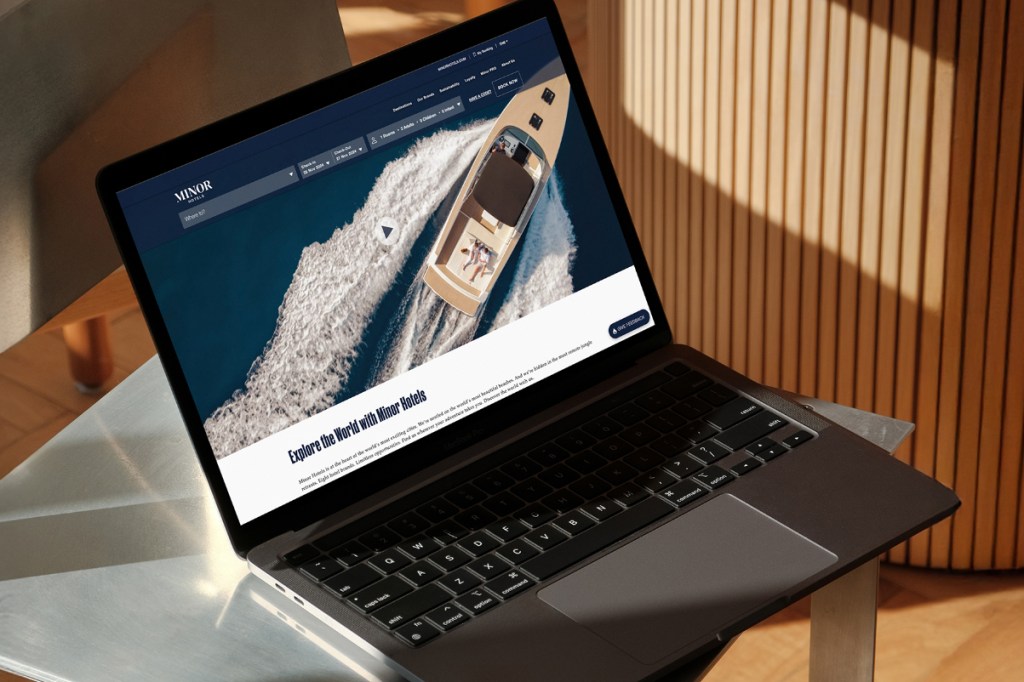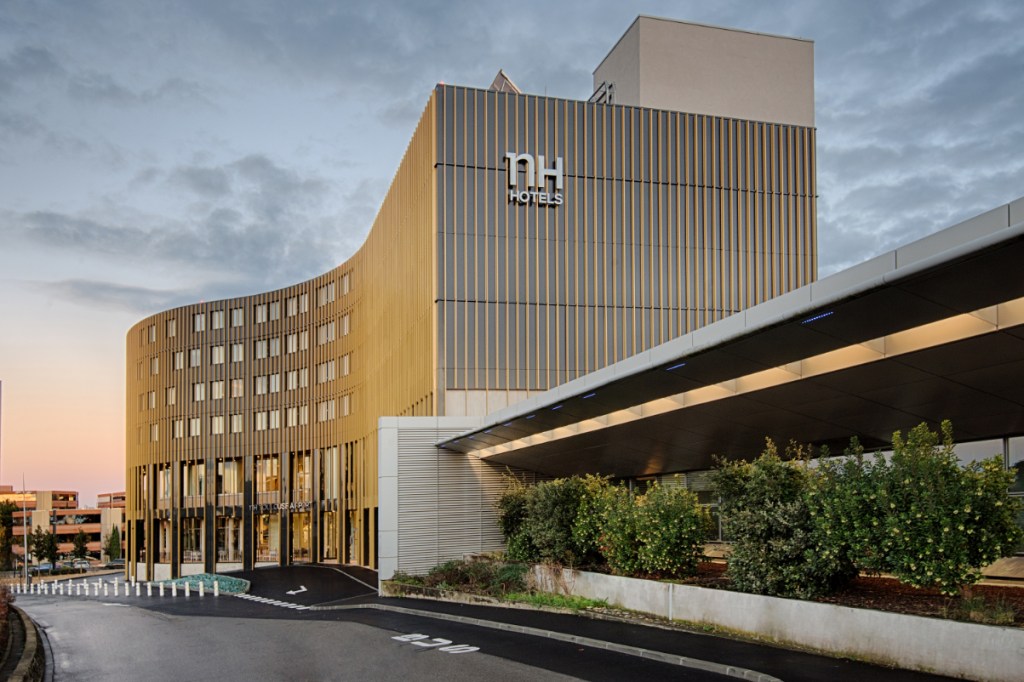
Skift Take
Thailand’s Minor Hotels is tired of running eight different hotel apps, and customers are tired of downloading them. Moving to an umbrella brand makes sense. The company can consolidate its tech, better recognize its most loyal customers, and drive more direct bookings.
Minor Hotels is pivoting to a “masterbrand” approach, unifying its eight hotel chains under a single umbrella brand and app.
“Up until now, each of the brands has had an app. What’s up with that? That’s crazy,” said Ian Di Tullio, global chief commercial officer. “Many people don’t visit every year.”
Soon, all customers will use just one unified mobile app branded Minor Hotels, which has quietly soft-launched in app stores.
“This fits with our aspiration to be a top-10 global hospitality organization while maintaining a value-driven approach to growth,” Di Tullio said. The Bangkok-based operator of nearly 600 hotels plans to run about 1,000 within five years.

Skift has heard from two company insiders Minor may launch as many as four new hotel brands this year.
Di Tullio didn’t comment but said that the group is looking to grow and that the masterbrand strategy will make it easier for the group to add brands and cross-sell them to its existing customer database.
Minor Hotels’ portfolio currently lacks any conversion or soft brands.
It also perhaps could use a greater variety of “lifestyle hotels,” which are high-design, food-forward brands.
While Minor has nhow and Avani as lifestyle brands, lifestyle hotels serve many demographic niches. They have recently become popular in the U.S., fueling Hyatt’s recent acquisition of Standard International and Hilton’s purchase of Graduate Hotels and Nomad.

A key strategy component in the masterbrand strategy is the unification of the company’s loyalty programs under “Minor Discovery.” For instance, NH Hotels customers will no longer use NH Discovery but instead Minor Discovery.
Di Tullio emphasized that by combining all customer data, Minor Hotels can provide more relevant offerings and recognize loyal customers regardless of which brand they visit.
Minor aims to consolidate all customer accounts and allow members to access benefits across properties by the end of March.
Minor Hotels plans to have a harmonized customer relationship management system and data infrastructure in place by the end of the year. This tech overhaul will provide greater insights to its marketers.
Minor Discovery is run by Global Hotel Alliance, a loyalty and distribution business for about 50 brands, such as Kempinski and Doyle Collection.
One test of the new approach’s success will be whether Minor Discovery encourages more travelers to book directly through Minor’s site and app rather than through online travel agencies that charge high commissions, benefiting hotel owners.

Di Tullio said now was an ideal time to launch a masterbrand. “Asia has been recovering more slowly from the pandemic and is only getting back to pre-Covid levels now,” he said.
Rather than spend tens of millions on creating awareness of its masterbrand, such as IHG has done in the past few years, Minor International will mostly let customers absorb the marketing messages directly over 3 to 5 years to build up this parent brand equity.
“It’s going to be organic and deep equity that we’ll have built with these travelers,” Di Tullio said. “We will leverage these eight brands, which have popularity and awareness in different geographies.”
Unlike many franchise-driven competitors, Minor Hotels owns approximately 70% of its assets. This business structure gives the company more direct control over implementing its master brand strategy and customer experience initiatives.
“Everything you do filters through all the way to the bottom line, which is a game changer as you start thinking about the business,” Di Tullio explained.
What am I looking at? The performance of hotels and short-term rental sector stocks within the ST200. The index includes companies publicly traded across global markets, including international and regional hotel brands, hotel REITs, hotel management companies, alternative accommodations, and timeshares.
The Skift Travel 200 (ST200) combines the financial performance of nearly 200 travel companies worth more than a trillion dollars into a single number. See more hotels and short-term rental financial sector performance.
Up Next
Experiences
How Travel Brands Can Seize the ‘Q5’ Opportunity on TikTok
Driven by increased spending on experiences and the digital habits of younger audiences, TikTok has emerged as a key platform for inspiring and shaping travel decisions. Leveraging the platform’s reach early in the year presents a unique opportunity for travel brands to connect with eager travelers.
TikTok for Business + Skift | 2 months ago
Sponsored
Hotels
Why Ibis Is Betting Big on Indian Metros as Competitors Turn to Smaller Cities
As Ibis India is on its way to meet its initial pipeline target, it is reluctant to move away from its micro markets-focused strategy. The fact that it does not require large land parcels for hotels lends further edge for expansion in land-strapped metros and Tier-1 markets.
Bulbul Dhawan | 3 hours ago
Hotels
How Marriott Is Defending its Lead in Branded Residences
If you’ve ever stayed at a hotel and thought “I wish I could just live here,” well, you’re not alone. Marriott says its sales of branded residences are booming.
Debbie Carlson | 8 hours ago
Tourism
Japan’s Mount Fuji to Hike Entry Fees
Japanese officials believe they’re taking steps to better manage visitor numbers at Mount Fuji. For now, Japan’s tourism boom is showing no signs of slowing down.
Rashaad Jorden | 12 hours ago
Luxury
Aero’s Luxury Bet: Is Premium Service the Right Play for Semi-Private Aviation?
Aero sees a business opportunity in the space between first class and entry level private aviation. They are leaning into high touch hospitality to court their market segment but it comes at a cost to the operating model.
Colin Nagy | 12 hours ago
















